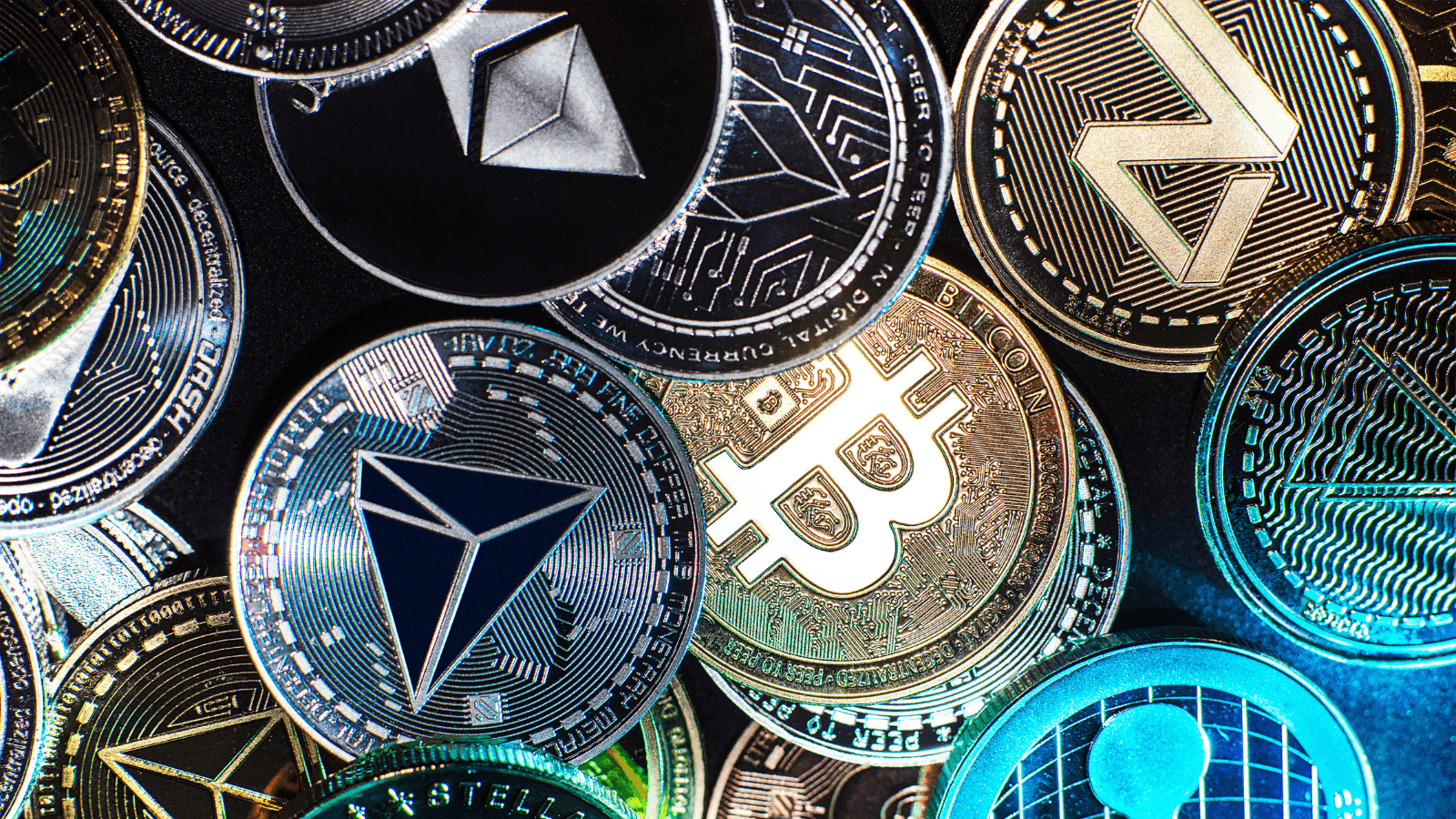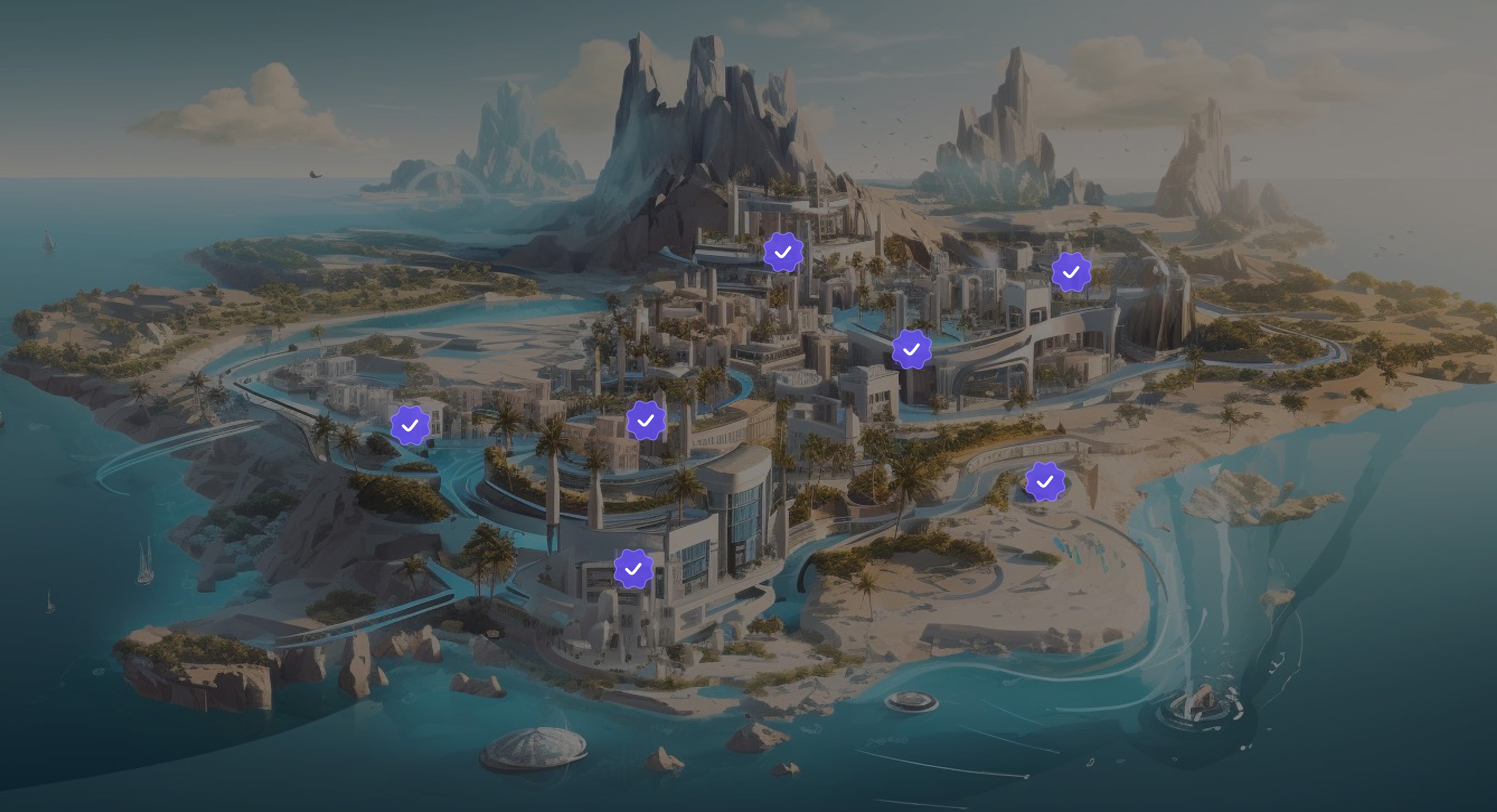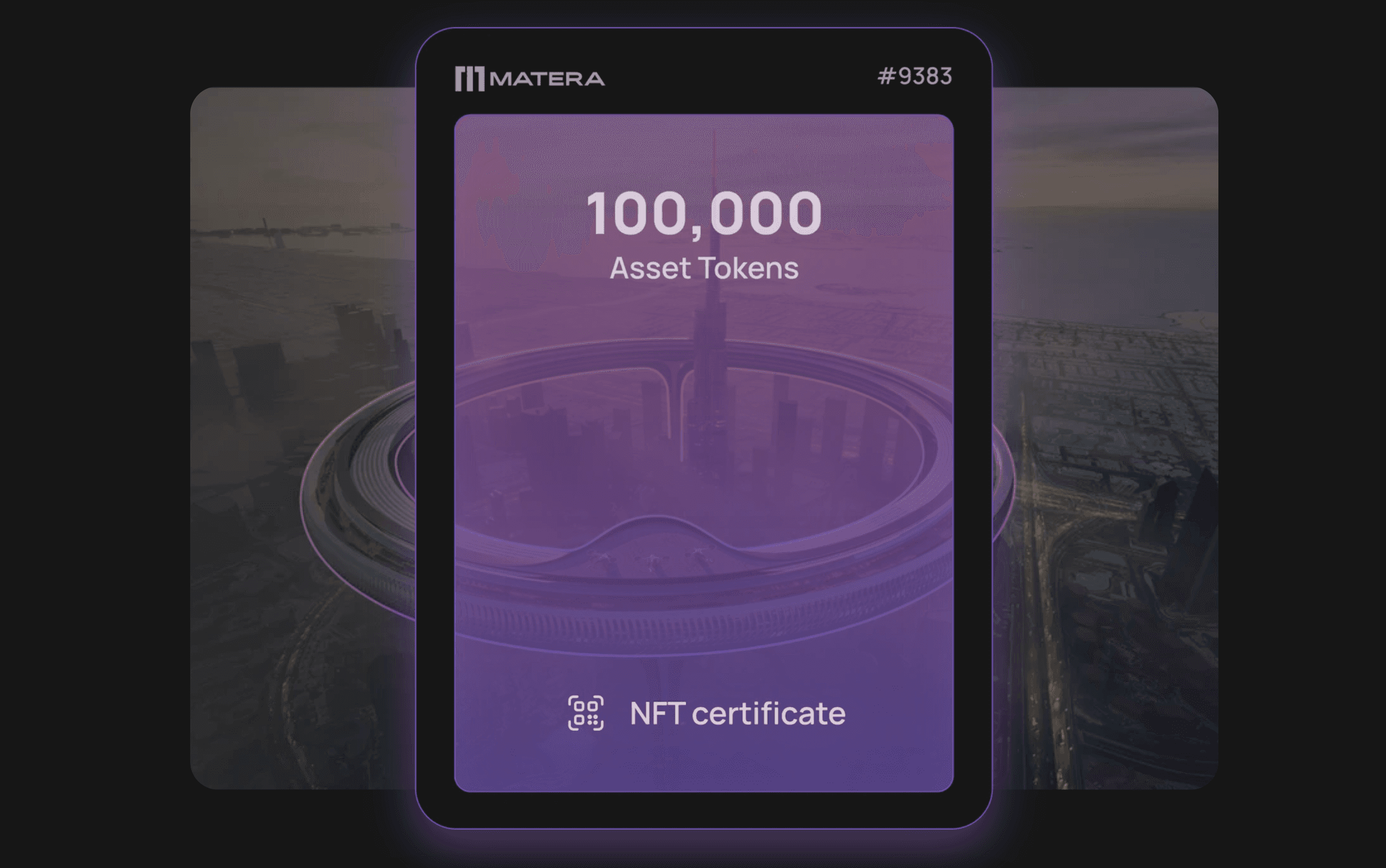Back to Blog
The Power of Tokenization in the Metaverse
Oct 12, 2023
Callum Moates
As the metaverse expands, tokenization emerges as a game-changer, enabling the representation of assets like virtual art, land, and wearables as tokens.
Within the 3D internet, tokenization is positioned to completely revolutionize economic structures and redefine ownership. Users can gain verifiable, blockchain-backed ownership of their virtual possessions by converting assets into tradeable digital tokens. This ownership model empowers individuals and paves the way for decentralized economies, fostering new business models and markets.
Tokenization in the metaverse: What is it?
Tokenization refers to converting tangible or intangible assets into digital tokens on the blockchain. In the context of the metaverse, these tokens serve as a digital representation of ownership for assets like a piece of virtual real estate, artwork, in-game items, or even an avatar's attire. These tokens are a scarce, authentic, secure, and transparent representation of assets owing to blockchain technology. The blockchain ensures that once an asset is tokenized, its ownership is verifiable and tamper-proof. For instance, a virtual art gallery in the metaverse might have digital paintings, each represented by a unique digital token, signifying its value and authenticity.
NFTs (non-fungible tokens) are virtual tokens that have gained immense popularity in the metaverse and have been used to represent unique assets like virtual real estate or digital art. Unlike cryptocurrencies such as Bitcoin or Ethereum, where each token is identical (or fungible), NFTs are distinct and cannot be exchanged on a one-to-one basis. Tokenized assets in the metaverse, especially NFTs, are characterized by their uniqueness, ensuring no one can replicate them. Each token has distinct information or attributes that make it different from any other token, like a limited edition digital fashion piece or a sports trading card. This uniqueness ensures that the asset's value is preserved.
Protocols like Landvault’s Matera simplify the tokenization process for creators and consumers, allowing the creator to bring their virtual worlds and creations on-chain, verify them, and monetize them directly. This process helps creators assign IP to digital assets with physical counterparts, protect assets from copycats, and create a token economy for their community.

Digital ownership in the metaverse
Tokenization in the metaverse reshapes our understanding of ownership in the digital world. Traditionally, digital assets, whether in-game items or digital art, were owned by the platform or service provider, with users merely purchasing licenses to use or view them. However, with tokenization, this is shifting. Now, users can have genuine, verifiable ownership of digital assets backed by the blockchain. They can carry these virtual objects from one place to another or exchange them in the digital world, as these assets are bound to a user’s identity.
Here are some advantages of owning tokenized assets:
Verifiable provenance: Every transaction related to tokenized assets, from its creation to its current ownership, is recorded on the blockchain.
Transparency and security: The blockchain ensures that the asset's history is both transparent and tamper-proof, allowing for verification of ownership and ensuring these assets cannot be deleted, replicated, or destroyed.
Undeniable proof of authenticity: The blockchain-backed nature of tokenized assets provides evidence of their authenticity and uniqueness.
Greater control over assets: Tokenized asset owners can transfer, sell, or display their assets without requiring permission from a centralized authority or platform.
For instance, imagine a scenario in a metaverse platform like Decentraland, where a user acquires a digital land parcel represented by a unique NFT. The user then transforms this digital plot into a virtual art gallery, attracting numerous visitors and generating revenue from visits. As the gallery's popularity soars, so does the value of the virtual land. Eventually, the owner can capitalize on its increased value, selling the parcel and transferring the ownership NFT to the new buyer.
Potential for fractional ownership of tokenized assets
Tokenization also introduces the concept of fractional ownership to the metaverse. Instead of a single entity owning a virtual asset, it can be divided into smaller fractions, each represented by a token. This means multiple individuals can own a previously unattainable high-value asset, making investments more accessible and allowing people to benefit from its potential appreciation. For example, several people can own a valuable virtual real estate or a rare digital artwork, each holding a fraction of the asset's value. Fractional ownership promotes collaboration, as multiple owners might come together to develop or utilize an asset, pooling resources and ideas.

Tokenized economy
Metaverse platforms like Decentraland and Somnium Space are paving the way for a new digital society where individuals can claim land, engage socially, trade items, and establish ownership.
Like in the real world, a thriving economy is essential for any society, virtual or otherwise. The economy relies on verifying digital assets, such as homes, vehicles, farms, literature, apparel, and furnishings in these digital realms. In the metaverse, tokenization ensures verifiable digital ownership.
These economic opportunities in the metaverse are leading to the emergence of virtual marketplaces and commerce, including:
Real estate: In the metaverse, selling and buying real estate on a virtual platform for tangible money is becoming commonplace. Users can bid on digital land or any property they choose and purchase it to gain ownership. A notable platform enabling virtual land and property trading is Upland, a blockchain-driven real-estate metaverse project that allows individuals to buy and sell digital land. In Upland, properties are represented through NFTs, allowing users to become digital landowners, creating a digital economy that mirrors real-world dynamics.
Virtual goods and services: There's a booming market for virtual goods such as clothing for avatars, accessories, weapons for games, and digital art. These items can be tokenized and traded on virtual marketplaces like OpenSea for digital collectibles and SuperRare for unique digital art.
Virtual currency: Many 3D internet platforms have their own native tokens or virtual currencies to participate in the digital world. For instance, Decentraland uses the MANA token, and The Sandbox uses the SAND token. These tokens can be used for transactions within the metaverse or traded on external crypto exchanges.

The democratization of creativity
Tokenization in the metaverse creates the ability to give back power, control, and ownership to creators and artists. Here are a few ways tokenization is empowering content creators:
Direct monetization: Tokenization facilitates a direct connection between creators and their audience by allowing artists to sell their tokenized creations directly to consumers on various NFT marketplaces, such as OpenSea and Rarible. This direct sale means artists receive a larger portion of the profits than traditional platforms where intermediaries take a significant cut.
Authenticity and provenance: NFTs provide a transparent record of ownership and provenance, ensuring buyers purchase authentic works directly from the creator or verified previous owners.
Digital ownership and scarcity: Tokenization allows creators to mint unique digital tokens, or NFTs, representing their artwork or digital creations. This ensures verifiable digital ownership and introduces the concept of scarcity in the digital realm, much like a limited edition physical art piece or product.
Royalties: One of the revolutionary aspects of tokenized assets is the ability for creators to earn royalties. Smart contracts can be programmed to give artists a percentage of sales every time the NFT is resold in secondary markets. This ensures artists benefit from the appreciation of their work over time.
Tokenization opens up the floor for all types of creators, including digital artists, game developers, filmmakers, musicians, and athletes can tokenize their work. Whether a piece of digital art, an in-game item, or a virtual experience, it can be minted as an NFT and monetized.
As mentioned previously, Landvault’s Matera Protocol is one of these solutions for creators to benefit off the 3D internet's creator economy. Matera allows creators to verify, tokenize, and then monetize their virtual assets all within one toolkit.

Conclusion
Tokenization in the metaverse holds transformative potential, reshaping ownership, economic models, and creativity in the 3D internet. Converting assets into digital tokens introduces new verified ownership and seamless transactions of digital items. This tokenized economy democratizes access to high-value assets and fosters unparalleled innovation and creativity by empowering creators.
Are you looking to tokenize your digital creations in the metaverse? We can help you build, scale, and monetize your 3D assets on-chain with Matera. Get in touch with us!
Oct 12, 2023
Callum Moates
Subscribe to our monthly newsletter
About Landvault
Landvault is building infrastructure to accelerate the metaverse economy, by building tools to create, deploy and monetize content. The company has helped over 200 clients enter the metaverse, including both Fortune 500 companies and government organizations like the Abu Dhabi government, Mastercard, L’Oreal, Red Bull, and Heineken. The company has raised a total of $40m over the past three years and continues to pioneer technological advancements.
